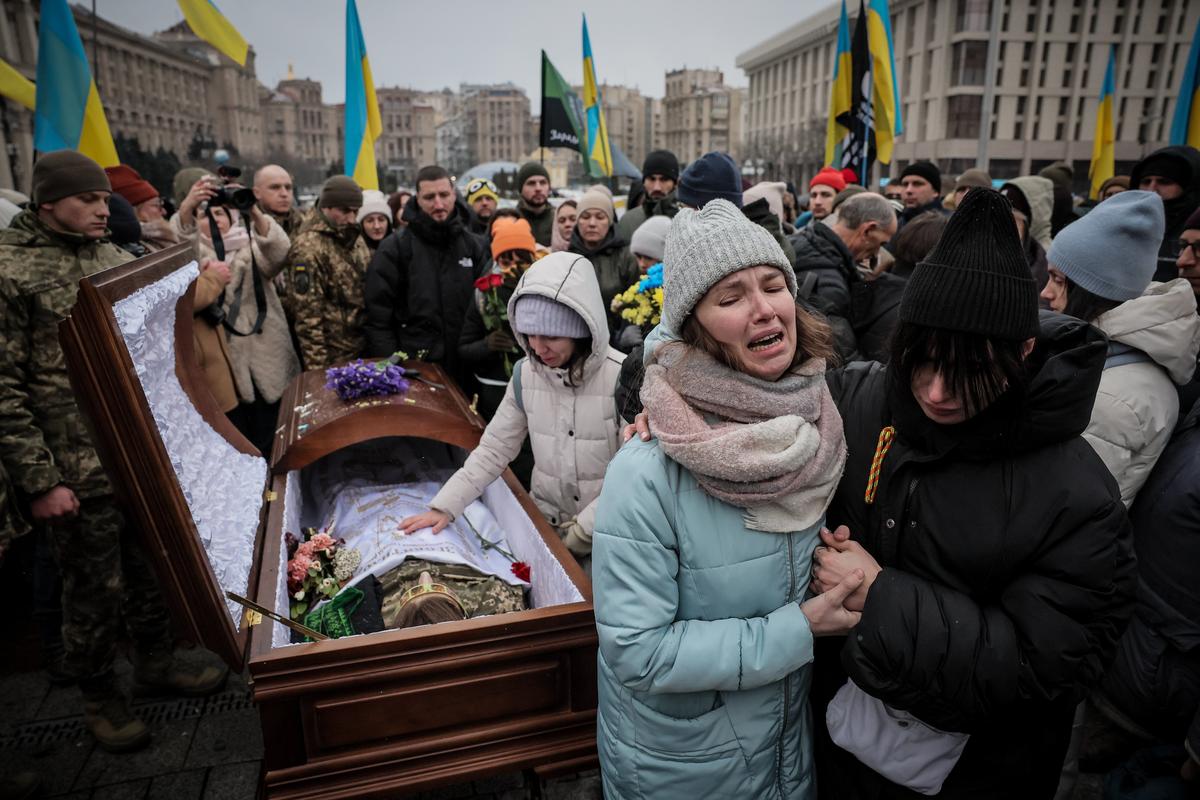



At the end of World War I, John Maynard Keynes was part of the British delegation to the Paris Peace Conference, where the victorious allies dictated the peace terms for the defeated Central Powers. He emerged from the conference distraught. As he subsequently wrote in The Economic Consequences of the Peace, delegates’ focus on short-term political considerations, including the desire to punish Germany for its aggression, would come at the cost of long-term social and political stability in Europe. It is a warning worth remembering today.

Gene Frieda
senior visiting fellow at the London School of Economics
Keynes’s 1919 admonition proved prescient. None of the leaders of the three allied powers lasted more than three years in office after signing the Treaty of Versailles. Over the following decade, Germany faced worsening instability, with hyperinflation giving way to depression, as successive governments attempted to meet the treaty’s onerous terms. Sharply declining prosperity, together with collapsing faith in their government, fuelled popular anger and contributed to the rise of Adolf Hitler. The result was the deadliest conflict in human history.
US President Donald Trump’s administration appears poised to make a similar mistake as he negotiates a deal to end the Ukraine war — only this time, it is the victim, not the aggressor, that is to be punished. Its provision of extensive military and financial assistance to Ukraine, together with its pivotal role in NATO, which is supposed to guarantee Europe’s security, gives the United States enough leverage to force Russia to the negotiating table. But rather than engage in lengthy discussions aimed at prying concessions from Vladimir Putin, Trump seems committed to the path of least resistance: giving Putin whatever he wants.

Mourners at the funeral ceremony for Ukrainian serviceman Maksym Kryvtsov in Kyiv, Ukraine, 11 January 2024. Photo: EPA-EFE/OLEG PETRASYUK
This would include, presumably, an agreement to keep Ukraine out of NATO and potentially even the rollback of security guarantees for the Baltic states. It would also include the easing of economic sanctions as a kind of carrot aimed at guaranteeing peace in Ukraine. But this might have the opposite effect: by facilitating Russian rearmament, a sanctions rollback could accelerate the country’s return to aggression and disruption.
For Trump, that is Europe’s problem. The world is being redivided into spheres of influence, so European democracies — including a fragmented European Union — will have to compete with Russia for regional leadership. And, in fact, any post-conflict peacekeeping operation will comprise only European troops. But this logic is as deeply flawed as that of the Treaty of Versailles, and it is likely to have similarly disastrous effects, starting with the destruction of Ukraine’s sovereignty and the destabilisation of Europe.
For Ukraine, a US retreat behind the high walls of Trump’s “America First” agenda would mean certain death. Russia might not even have to resort to military action to bring the country under its de facto control; disinformation campaigns alone could undermine the authorities’ legitimacy.
The Ukrainian peace the Trump administration appears likely to embrace may also cause the international financial system to splinter.
As for the rest of Europe, it will confront an unenviable choice between committing ever more resources to defence and investing in solutions to other existential challenges, such as climate change and societal aging. Managing this trade-off will be the greatest challenge, both financially and politically, that European leaders have faced since the end of the Cold War.
As visions for European security diverge, EU unity will be tested like never before — not even in the 2010s, when economic fragmentation nearly destroyed the eurozone. Given Europe’s lack of growth potential or visionary political leadership — deficiencies that emerged well before the Ukraine war — some EU countries might be drawn toward a Eurasian bloc, anchored by Russia and China, promising cheap energy, cheap goods, and an alternative open-source technology standard. In any case, the days of a single integrated global economy appear to be numbered.
The Ukrainian peace the Trump administration appears likely to embrace may also cause the international financial system to splinter. Security guarantees have long formed a pillar of the US dollar’s dominance — and the exorbitant privilege this affords the US. That is why Russia’s 2022 invasion of the Ukraine, which bolstered support for NATO and led to the strengthening of security guarantees for Taiwan, reinforced the dollar’s primacy.
America’s abandonment of Ukraine and rejection of NATO, together with its removal of sanctions on Russia, would have the opposite effect, spurring private and official investors to seek alternatives to the dollar. By undermining trust in the US and worsening America’s growth prospects, Trump’s embrace of trade tariffs would reinforce this trend.

Rescue workers at the site of a damaged building after a missile strike in Kyiv, Ukraine, 2 January 2024. Photo: EPA-EFE/SERGEY DOLZHENKO
Weaker demand for dollar assets would lead to higher borrowing costs for the US government and American firms. The resulting drag on growth could drive US leaders to double down on misguided protectionist policies and ramp up pressure on the US Federal Reserve to prioritise growth over price stability.
As with Britain in Keynes’s time, the negative feedback loop between higher fiscal deficits, rising borrowing costs, and weaker growth will strengthen the incentive for investors to seek alternatives to the dollar. With Europe racked by instability, China is likely to be the main beneficiary of this effort.
At the Paris Peace Conference, Keynes saw what his colleagues did not: the Treaty of Versailles would set the stage for a new conflict. The “war to end all wars” would soon have a sequel. The same can be said of the Trump administration’s plans for ending the war in Ukraine.
This article was first published by Project Syndicate. Views expressed in opinion pieces do not necessarily reflect the position of Novaya Gazeta Europe.
The Russian government has banned independent media. We were forced to leave our country in order to keep doing our job, telling our readers about what is going on Russia, Ukraine and Europe.
We will continue fighting against warfare and dictatorship. We believe that freedom of speech is the most efficient antidote against tyranny. Support us financially to help us fight for peace and freedom.
By clicking the Support button, you agree to the processing of your personal data.
To cancel a regular donation, please write to [email protected]
VPNovaya
Help Russians and Belarusians Access the Truth
